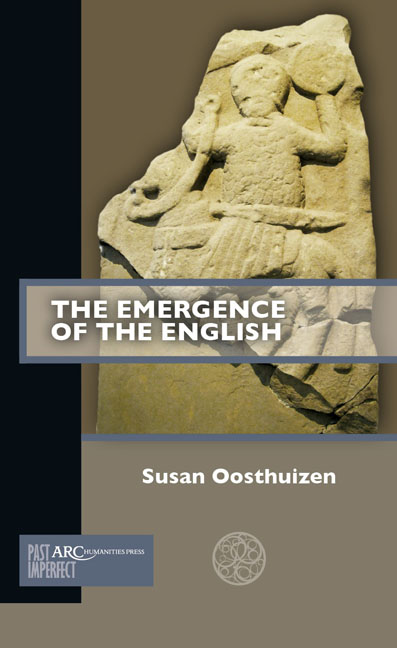Chapter 1 - Introduction
Published online by Cambridge University Press: 20 November 2020
Summary
One of the Great puzzles of British Cultural history concerns the emergence of the people who by 600 at the latest referred to themselves and their language as “English.” The Greek historian Procopius, whose knowledge of late antique Britain appears to have been more than a little garbled, nonetheless knew as early as 552/3 that it was inhabited, among others, by people called Angli, the English. In the late sixth century Pope Gregory (ca. 540–604) consistently referred to Angli in his letters, seemingly regarded the name as referring to the inhabitants of England as a whole since he described Æthelberht of Kent as rex Anglorum, “King of the English” (Figure 1).
The earliest surviving documentary evidence of Old English as an active vernacular language is Æthelberht's law code written in 600. Englisc (the English) were also mentioned in the late seventh-century laws of king Ine of Wessex (which also survive only in a ninth-century copy); and the venerable Bede took both usages for granted in his Ecclesiastical History of the English People, the Historia Ecclesiastica Gentis Anglorum, written a generation or so later in about 731.
Conventional interpretations of the emergence of the English and the cultural transformations of post-Roman Britain place migration into England from north-west Europe at their centre. It would be surprising had there not been migration into Britain in this period, since there has been a constant flow of people into and out of the islands since the last Ice Age. What is less certain is what, and to what extent, that movement affected the cultural, social, and political transformations of the fifth to eighth centuries. Brugmann has neatly skewered the problem by asking, “How many migrants are needed to explain the fifth-century cultural changes generally understood as marking the transition from Late Roman Britain to Early Anglo-Saxon England?”
This book explores such interpretations of the history of post-Roman Britain, the strengths and weaknesses of their supporting evidence, and an alternative model. Chapter 1 sets the scene with an overview of the prevailing historiography, necessarily limited by space. Chapter 2 distinguishes between what can reliably be known and assumed about the period, and what is more conjectural.
- Type
- Chapter
- Information
- Emergence of the English , pp. 1 - 18Publisher: Amsterdam University PressPrint publication year: 2019



